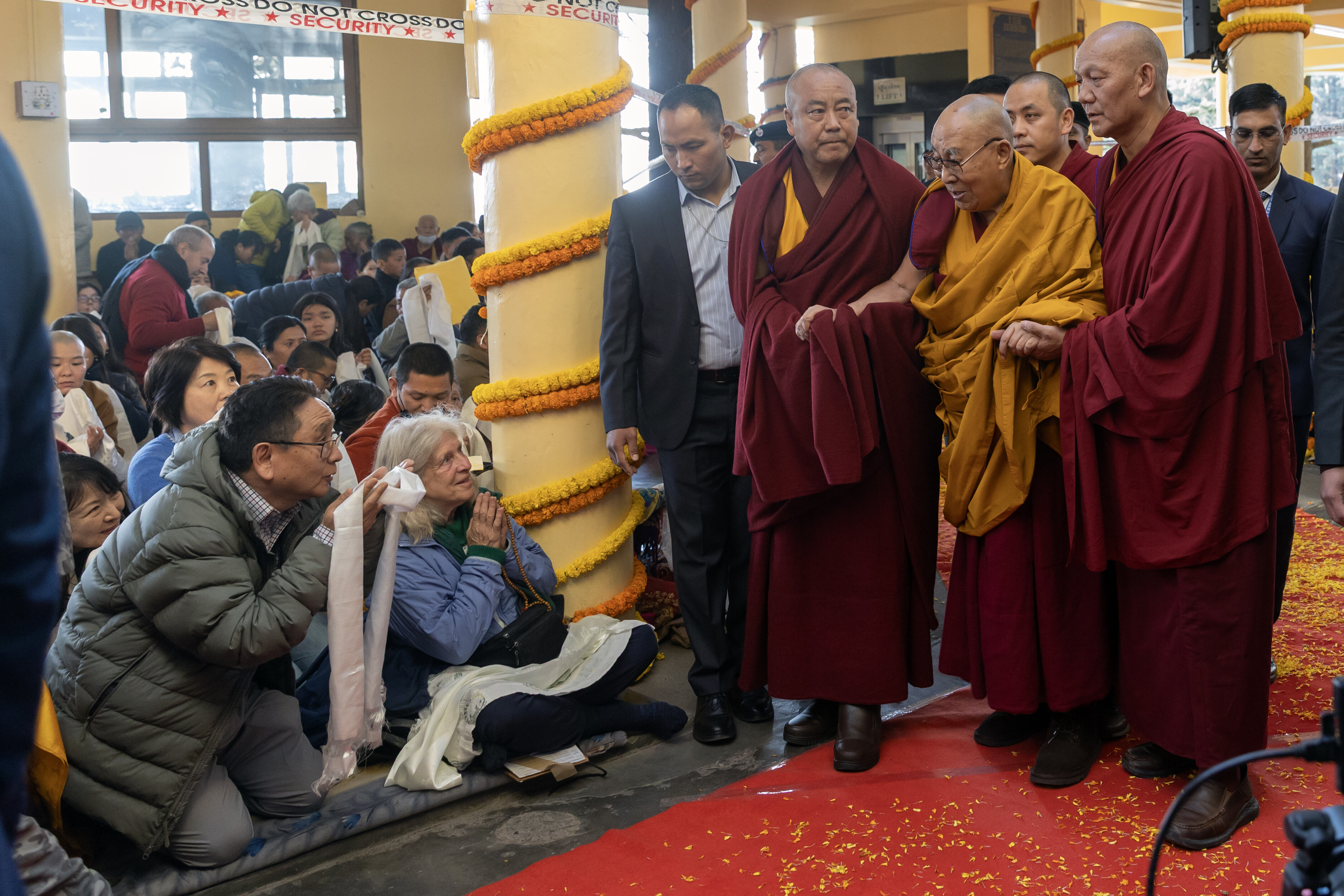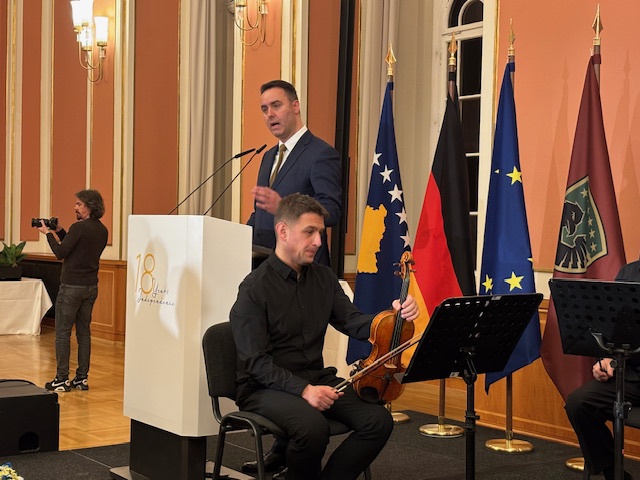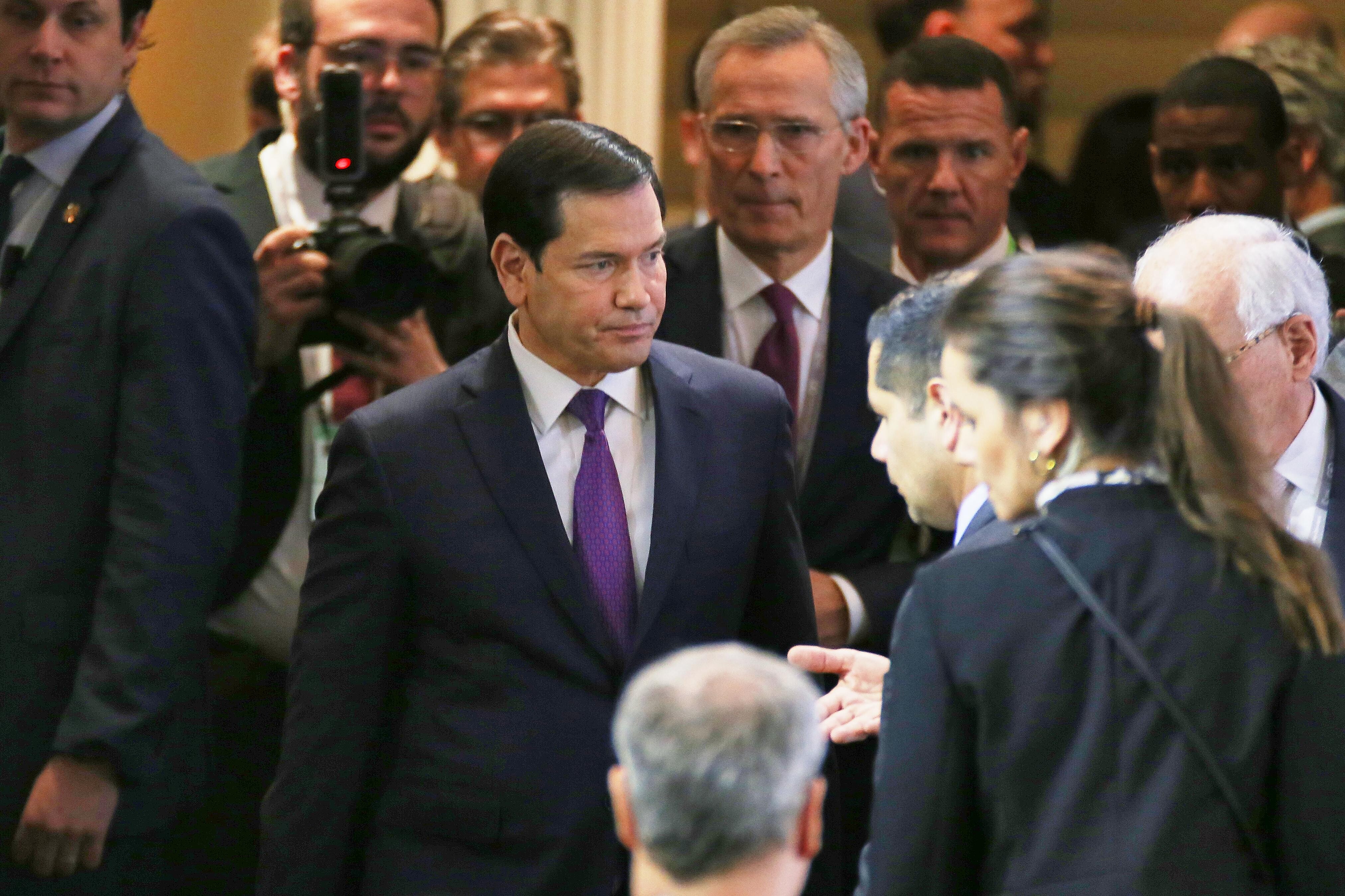diplo.news
Who is making Germany's new foreign policy?

Federal Chancellery
Chancellor Friedrich Merz (CDU) wants to be a head of government with a particular focus on foreign policy, like Helmut Schmidt (SPD) or Angela Merkel (CDU) before him. Germany should once again show leadership in Europe in terms of economic and security policy, and the “German vote”, notorious in the EU institutions in Brussels for the indecisive attitude of the Germans, should come to an end if possible. One of his goals is to revive the Weimar Triangle with France and Poland. Merz adheres to the principle of his former inner-party opponent Merkel that Israel's security is the reason of German state. However, since taking office, he changed the tone towards Israel and criticized the action against the Palestinian civilian population in the Gaza Strip. Merz gained foreign policy experience as a member of the EU Parliament. In 2009, the now 69-year-old retired from politics and worked in the private sector, including as Chairman of the Supervisory Board of the German branch of the world's largest asset management company, Blackrock.
Thorsten Frei (CDU), Head of the Chancellery and Federal Minister for Special Tasks - The lawyer occupies a key position in the new federal government, he is something like the chief clarifier, responsible for all issues. Frei has been a member of the Bundestag since 2013 - since then he has always won the direct mandate in his Baden-Württemberg constituency. He was a member of the Foreign Affairs Committee and the European Committee for several years. In the asylum debate, the 52-year-old advocates for a clear limitation of migration.
Günter Sautter, Foreign Policy Advisor - The top diplomat advised former Foreign Minister Annalena Baerbock (B90/The Greens) as the Political Director on foreign and security policy issues. He previously headed the Department of International Order, United Nations and Arms Control at the Federal Foreign Office and was the Federal Government Commissioner for Disarmament and Arms Control. In the Chancellery, he has taken over the important Department 2 and advises the Chancellor on foreign, security and development policy issues.
Michael Clauß, European Policy Advisor — As a young diplomat, Clauß was a member of the Federal Government's crisis team during the Second Gulf War in 1990. He then gained experience at the German Embassy in Tel Aviv, among others. From 2018 to 2023, he was ambassador to China. The 63-year-old has particular expertise in European affairs, which he gained as head of the European Department at the Federal Foreign Office and during his almost seven years as Germany's EU representative in Brussels. This period included dealing with the consequences of Brexit.
Jacob Schrot, Head of Chancellor's Office and National Security Council Staff Unit - The 35-year-old political shooting star is now part of the inner circle of power; in his functions, he can influence not only who has access to the chancellor but also what future strategic plans in foreign and security policy look like. He already worked for Friedrich Merz as Chief of Staff when he chaired the CDU/CSU parliamentary group. Schrot gained international experience during a research visit to Washington, where he worked for a Democratic congressman and the German Marshall Fund. He founded the Young Transatlanticists Initiative.
Foreign Office
Foreign Minister Johann Wadephul (CDU) - Germany's chief diplomat is a lieutenant colonel in the reserve and has a particular affinity for defense policy issues. With a larger delegation of German defense companies, he has just visited Ukraine and sealed more intensive cooperation in arms policy. The 62-year-old lawyer has been responsible for foreign policy and defense as vice-chairman of the CDU/CSU parliamentary group since 2018. Before his term in the Bundestag, he was a member of the Schleswig-Holstein state parliament. He takes a tough line with further sanctions against Russia, but stresses that in the end, a solution to the conflict can only be achieved through negotiations and not on the battlefield. He is also campaigning for negotiations with Iran with the participation of Europeans.
Serap Güler (CDU), Minister of State - With the former Minister of Integration Armin Laschet (CDU) in North Rhine-Westphalia, she gained government experience as a consultant, later as State Secretary for Integration at the Ministry of Family in the most populous federal state. Güler is the CDU's first Turkish-born member of the Bundestag (since 2021), the Muslim woman spoke out in favour of a headscarf ban for girls under 14 years of age and supported dual citizenship, which is now possible in Germany. In office, she is responsible, among other things, for the African continent.
Florian Hahn (CSU), Minister of State - Until his appointment, Hahn was defense policy spokesperson for his parliamentary group for four years. He advocates a rapid reintroduction of compulsory military service in view of what he believes to be a dramatically changed threat situation posed by Russia and the strengthening of its own German and European defense capabilities. The AA's marketing specialist includes the UN and arms control departments, foreign climate policy and geoeconomics.
Gunther Krichbaum (CDU), Minister of State - He is regarded as a proven expert on European policy and is also responsible for this at the Federal Foreign Office. The lawyer is also the Federal Government Commissioner for Franco-German Cooperation. For around 20 years, Krichbaum has been working on European policy issues - as chairman of the European Committee in the Bundestag and the Franco-German parliamentary group and as European policy spokesperson for the CDU/CSU parliamentary group.
Bernhard Kotsch, State Secretary - In contrast to the political appointments of Minister of State posts, Kotsch comes from the diplomatic service - with assignments as ambassador in Malta and in the Vatican and at the German missions in Dakar and Skopje. The doctoral political scientist has also gained extensive experience in the Chancellery: For ten years, he worked as Deputy Head of the Merkel Office, then as Coordinator of the Intelligence Services until 2021. The State Secretaries represent the Foreign Minister as the highest-ranking officials in the management of the Foreign Service and are responsible for the foreign missions.
Geza Andreas von Geyr, State Secretary - von Geyr is also a so-called career diplomat, was Germany's representative to NATO and ambassador in Moscow until his appointment. During his stay in Moscow, the Russian Army invaded Ukraine in February 2022. The 63-year-old with Austro-Hungarian roots worked for a time in the Union parliamentary group and also served in other ministries and government institutions, such as Vice President of the Federal Intelligence Service and as Head of Policy Department at the Ministry of Defence.
Oliver Linz, Head of Planning Staff - He comes from the CDU/CSU parliamentary group and was a close associate of Wadephul there. Linz also has a background in security policy. The planning staff analyzes medium and long-term foreign policy developments - also with the help of scientific and advisory institutions - and develops strategies.
Federal Ministry of Defense
Boris Pistorius (SPD) Defence Minister - The Social Democrat already held the same office under the previous red-black-green government. He is one of the most popular politicians in Germany. Pistorius is campaigning for a turning point in German security policy; he said that Germany must become ready for war. He wants to introduce voluntary military service at the turn of the year and thus attract around 114,000 new recruits by 2029. The Bundeswehr is expected to grow from the current 182,000 to 260,000 active soldiers and 200,000 reservists.
Nils Schmid (SPD), Parliamentary State Secretary - Formerly Minister of Finance and Economics and Deputy Minister President in Baden-Württemberg, Schmid has been a member of the Bundestag since 2017 and has been foreign policy spokesperson for the SPD parliamentary group since 2018. He has been a member of the Foreign Affairs Committee since 2021 and has co-chaired the Franco-German Parliamentary Assembly since 2022. Parliamentary state secretaries can represent their minister in the Bundestag and, unlike official state secretaries, must follow the minister when they leave the office.
Sebastian Hartmann (SPD), Parliamentary State Secretary - The 48-year-old comes from North Rhine-Westphalia and gained local political experience there. In particular, he is likely to contribute his expertise on internal security. He has been a member of the Bundestag since 2013, was a member of the Interior Committee for ten years, domestic policy spokesperson for the SPD parliamentary group since 2021 and a member of the parliamentary control body, which supervises the intelligence services.
Jens Plötner, State Secretary - Defence Minister Pistorius appointed former foreign and security policy advisor to former Chancellor Olaf Scholz as Secretary of State for Armaments and Innovation. The 57-year-old diplomat is to speed up procurement processes, promote European armaments projects and the integration of new technologies. This makes him responsible for one of the most important tasks in the ministry. His appointment was controversial: critics accuse him of being responsible for an overly hesitant Ukraine policy in the previous government period.
Nils Hilmer, State Secretary - The 44-year-old is one of Pistorius' confidants from Lower Saxony days, including managing his office when he became Minister of the Interior in Hanover. With him, he moved to the Ministry of Defense in 2023. Hilmer represents the minister in his role as holder of command and control authority and also heads the administration as head of office.
Jan Stöß, State Secretary - The former judge fills the additionally created position of third State Secretary. He has headed the legal department in the ministry since 2022 and, according to the authority, was involved in key projects to improve processes and structures. Stöß originally wanted to make a career in Berlin state politics. In 2012, he replaced Michael Müller as SPD party leader. However, he did not succeed in becoming the governing mayor.
Federal Ministry for Economic Cooperation and Development
Reem Alabali Radovan (SPD), Minister of Development - The 35-year-old has roots in Iraq, where her parents belonged to the Christian minority. She made a flash political career: After joining the SPD in 2021, she moved directly into the Bundestag shortly after and was then appointed Minister of State and Commissioner for Migration, Refugees and Integration in the Chancellery under Olaf Scholz. Her current ministry has to cope with cuts of around one billion euros and was even threatened with being cut completely during the coalition negotiations. The political scientist wants to focus more on cooperation with industry in future.
Johann Saathoff (SPD), Parliamentary State Secretary - The 57-year-old has already held the post of Parliamentary State Secretary at the Ministry of Interior and Justice. Saathoff has won his parliamentary constituency of Aurich-Emden directly in succession since 2013. He was a member of the Committees for Food and Agriculture and for Economic Affairs and Energy for several years.
Bärbel Kofler (SPD), Parliamentary State Secretary - She stands for continuity in the Ministry; Kofler was already State Secretary under predecessor Minister Svenja Schulze. As development policy spokesperson for the SPD parliamentary group and Federal Government Commissioner for Human Rights Policy and Humanitarian Aid, she also gained extensive experience in development aid.
Niels Annen (SPD), State Secretary - He also served Alabali Radovan's predecessor, albeit as Parliamentary State Secretary. However, he did not rejoin his Hamburg constituency for the 2025 federal election. In parliament, the 51-year-old discussed Germany's involvement in Afghanistan and the Middle East. Under former Foreign Minister Heiko Maas, Annen served as Minister of State. In June, the Supervisory Board of the Deutsche Gesellschaft für Internationale Zusammenarbeit (GIZ) confirmed him as its chairman.
Bundestag, Committee Chairman
Foreign Affairs Committee, Armin Laschet (CDU) - The former Minister President of North Rhine-Westphalia was a member of the EU Parliament for six years. His interest in foreign and European policy, he said on the occasion of his candidacy for chancellor in 2021, was once awakened by Helmut Kohl. Laschet sees himself as a real politician who worked to secure the German gas supply through the German-Russian pipeline project Nordstream II, which has now been stopped, even before the start of the Ukraine war. Close Franco-German relations are close to his heart. In the Iran-Israel conflict, the CDU politician lamented the “complete failure” of the Europeans and the weak appearance of EU High Representative Kaja Kallas, who apparently only cares about Ukraine.
Europe Committee, Anton Hofreiter (B90/Die Grünen) - The biologist has headed the European Committee since 2021, with the focus of his more than 20 years as a member of parliament on the fight for organic agriculture. He would have liked to be Minister of Agriculture. The Bavarian took a tough line against Russia early on with strict sanctions, consistent arms supplies to Ukraine and the possibility of also attacking Russian territory. He also supports significant increases in spending on defense. He criticizes the federal government for its tough migration course.
Defence Committee, Thomas Röwekamp (CDU) - With the 38-member Defence Committee, he heads one of the most important bodies of the Bundestag and was also its member in the previous legislative period. It is the first time after 27 years that the CDU has chaired it again. The lawyer from Bremen considers the planned voluntary military service to be inadequate and socially unfair and pleads for general compulsory military service for all.
Development Committee, Wolfgang Stefinger (CSU) - In 2025, Stefinger won a direct mandate in Munich-East for the fourth time in a federal election. He has been a member of the Committee on Economic Cooperation since 2017, most recently as chairman of the CSU regional group. The 40-year-old business economist criticizes the feminist foreign policy proclaimed by former Foreign Minister Baerbock. Instead of ideologized offers and pointing fingers, he believes that economic, efficiency-oriented development work makes more sense.
National Security Council - The coalition agreement between the CDU/CSU and SPD provides for a National Security Council in order to be able to react more quickly to domestic and foreign policy crises in future. However, the details of the new body, which is to replace the powerless Federal Security Council, have not yet been determined. Preparations are ongoing and the first results could be available in early autumn. Until then, it must be clarified what powers the Security Council has and who will become a member there, whether only officials from the Foreign Office and security authorities or even external advisors. According to Politico, a letter from the Federal Ministry of Finance to the Bundestag Budget Committee referred to 13 posts for the staff position in the Chancellery. However, the 2025 budget will not be adopted until mid-September. (gd)
The poster of the German Council on Foreign Policy can be downloaded from the IP website: International politics




